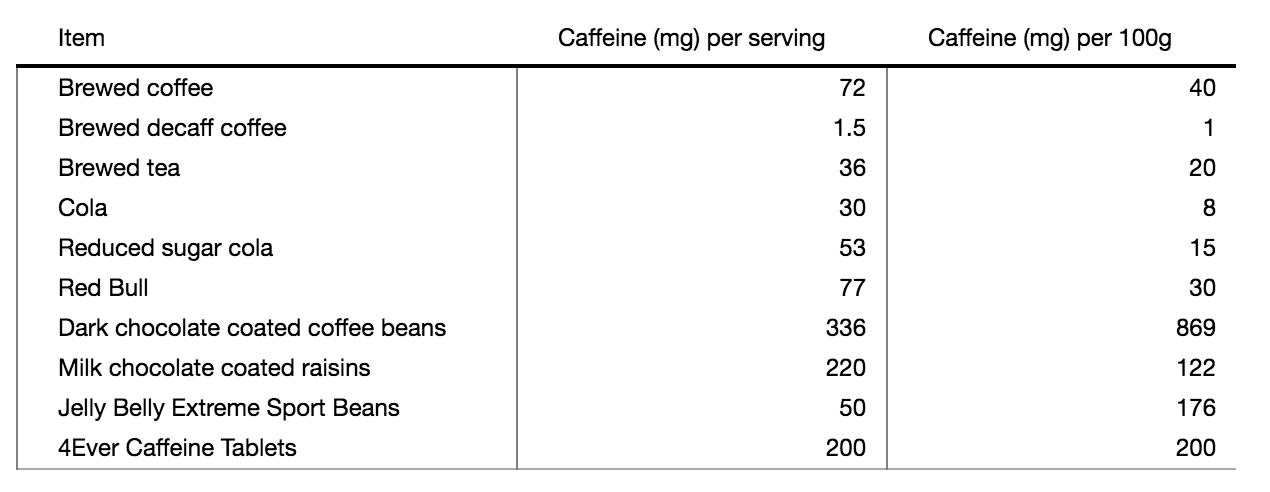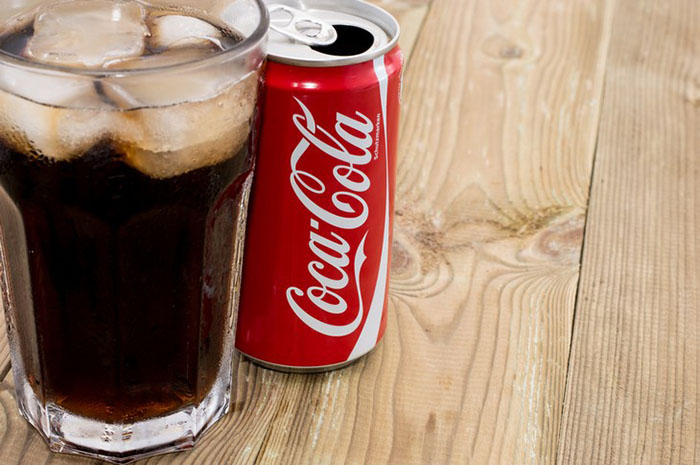News
Latest news
How Much Caffeine is in Your Favourite Drinks?
For those of us who don’t get enough sleep, the caffeine in cups of coffee or energy drinks gives us the kick-start we need in the morning and perks us up during afternoon slumps. Getting our energy from a mug, bottle or glass is an easy solution to the problem, but have you stopped to wonder precisely how much caffeine is in coffee? An article in the Guardian has published a graph to show just how much caffeine is in various popular drinks. Here, we can see the levels of caffeine in a serving in each popular drink.

Whether it’s from feeling the crash ourselves or increased buzz about the very real side-effects caffeine can have when consumed unhealthily, many are changing their drinking habits to cut back their caffeine intake. Billi UK have innovative water systems have been pioneers in the instant filtered boiling and chilled dispenser space for over three decades, so you can trust that we know a thing or two about healthy hydration.
Read on for some ideas on reducing your caffeine intake and use our handy infographic below to compare your energy drink habit with how many mg of caffeine are in a cup of coffee.
How Much Caffeine is in Coffee?
Coffee is the go-to drink for most people when they need a pick-me-up. It’s warm, tastes good and it’ll give you an energy buzz. It is the biggest dietary source of caffeine, but did you know that different preparations and even where you buy your coffee from can affect the caffeine content?

Filter Coffee Caffeine
This is the most traditional form of coffee and is made by pouring hot water over ground coffee beans in a filter. Expect about 95 mg in a standard cup of brewed or filtered coffee like you’d typically have in your office kitchen or at home. Interestingly, light roasts tend to pack more caffeine than their darker counterparts, despite the robust, slightly more bitter flavour of the latter.
How Much Caffeine is in Coffee from a Cafe?
Espressos are made by pushing hot water or steam through finely ground coffee and have a higher amount of caffeine per volume due to their small serving size. A single espresso is called a shot and contains around 63 mg of caffeine (or roughly 125 mg for a double shot).
Lattes, cappuccinos, and most other barista-made coffee use either a single or double shot of espresso with added milk and/or extra water. The extra liquids typically don’t have any additional caffeine content so these will usually be similar to espresso in strength. With “small” drinks usually containing a single shot and “large” options often containing two or more shots.
One of the most famous coffee chains in the world, is also a notable exception to these averages and offers highly caffeinated coffee. One shot of espresso can contain 75 mg of caffeine and larger sized beverages can contain up to 3 shots, even up to 225mg of caffeine!
Decaf and Instant Coffee
Instant coffee has been freeze-dried or spray-dried and is often the kind of coffee people will drink at home, as it’s quick and easy to make, though this makes measuring caffeine more difficult as people are prone to using different amounts and brands are less consistent. One mug typically contains around 30-90mg.
The name “Decaf Coffee” may suggest there is no caffeine in decaf coffee, but this is not true. Decaf contains varying amounts of caffeine ranging from 0–7 mg per cup, though again it is worth noting that decaf beverages from some cafes can contain 15-30mg of caffeine.
How Much Caffeine in Tea
Often incorrectly thought of as the milder cousin of coffee, tea’s caffeine content can be surprisingly high. Black, White, Green and Oolong tea have the highest typical caffeine content, as they’re all actually made from the tea plant (Camellia sinensis). Though individual brands and brew times can cause this to fluctuate, an average cup delivers around 27 mg of caffeine usually.
Do Herbal Teas Have Caffeine?
Unlike the above varieties, herbal teas aren’t made from the tea plant and are therefore naturally caffeine-free. Despite this, many teas are blended or contain added caffeine in the manufacturing process to provide the familiar buzz and take advantage of the chemical effects of caffeine, so it’s always best to read the box of your preferred tea brands to be sure.
Caffeine Content in Energy and Soft Drinks
How Much Caffeine in Coke?
It’s no shock to most people that Coke is high in caffeine. Coke has been around for a long time and is well known for its sugary sweet taste. A full-size can of regular Coke boasts around 34 mg of caffeine while Diet Coke actually contains more at 46 mg of caffeine per can (Coca-Cola Great Britain).
How Much Caffeine in Energy Drinks
Red Bull is synonymous with a quick energy boost, but how much caffeine is in a Red Bull? A standard small Red Bull can surprisingly have caffeine similar to an average cup of coffee, approximately 80 mg (Red Bull).

Healthier Hydration with Billi UK
In some cases, that strong cup of coffee or tea can be just what you need, but with an increasing number of individuals reducing their caffeine intake for health reasons, alternatives like herbal teas or Billi’s chilled, boiling, and sparkling water systems present healthier options. Many offices see a post-lunch crash in productivity, and having healthy options that still taste great and are readily available for your workforce is a surefire way to mitigate caffeine’s part in this.
Interested in exploring how a Billi system can transform your daily hydration habits? View our range and learn how you can embrace a healthier, more sustainable lifestyle today.
- 02 August 2018
- Category: Educational Information
- Posted by: Billi Marketing